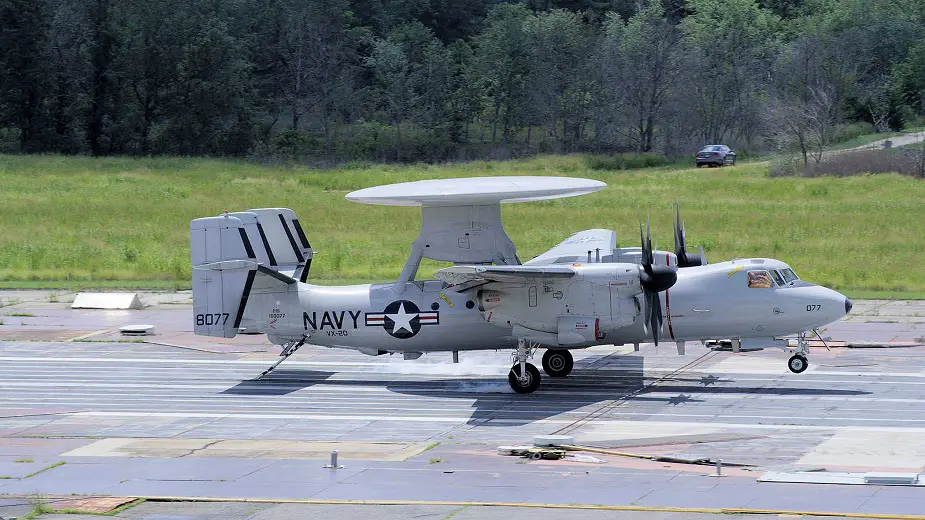Breaking news
NAVAIR Completes AAG Performance Testing with Propeller Aircraft.
The team behind the U.S. Navy’s newest carrier-based aircraft recovery system, the Advanced Arresting Gear (AAG), completed C-2A Greyhound, E-2C Hawkeye and E-2D Advanced Hawkeye Performance Testing Aug. 11 at a land-based test site located in Lakehurst.
 A E-2D Advanced Hawkeye flies into the Advanced Arresting Gear wire at the Runway Arrested Landing Site in New Jersey. The Aircraft Launch and Recovery Equipment (PMA 251) team, in conjunction with many collaborators, executed the comprehensive Performance Testing program to ensure the C-2A Greyhound, E-2C Hawkeye and E-2D Advanced Hawkeye can safely land aboard USS Gerald R. Ford (CVN 78). (U.S. Navy photo)
A E-2D Advanced Hawkeye flies into the Advanced Arresting Gear wire at the Runway Arrested Landing Site in New Jersey. The Aircraft Launch and Recovery Equipment (PMA 251) team, in conjunction with many collaborators, executed the comprehensive Performance Testing program to ensure the C-2A Greyhound, E-2C Hawkeye and E-2D Advanced Hawkeye can safely land aboard USS Gerald R. Ford (CVN 78). (U.S. Navy photo)
The propellered segment of the USS Gerald R. Ford’s (CVN 78) airwing, or “props,” completed a total of 450 aircraft recoveries since beginning the rigorous and specialized Performance Testing program in late May and will generate the Aircraft Recovery Bulletin (ARB) that clears the C-2A, E-2C and E-2D for future manned aircraft testing aboard CVN 78.
The Aircraft Launch and Recovery Equipment (ALRE) team designed and executed a test program that would validate AAG’s ability to safely arrest the aircraft aboard the supercarrier, while purposely challenging the system by inserting faults and verifying both the aircraft’s and system’s response by analyzing the data obtained during test.
The work at the Runway Arrested Landing Site (RALS), with aircraft flown by Air Test and Evaluation Squadron 20 (VX) pilots, followed extensive modeling and test recoveries of aircraft-representative weighted sleds at the nearby Jet Car Track Site (JCTS).
“Completion of AAG ‘Props’ testing is the result of dedicated efforts by many and is another critical step toward ensuring the system supports the full Ford airwing,” said Capt. Ken Sterbenz, ALRE Program Manager.
Concurrent testing at JCTS has been underway to support the F/A-18 Super Hornet ARB expansion as well as the EA-18G Growler ARB, and the jets will be the next to conduct a series of roll-in and fly-in arrestments at RALS. This pattern of sequential land-based testing will be completed for all aircraft types – first at JCTS, then RALS, prior to landing aboard the carrier.


























